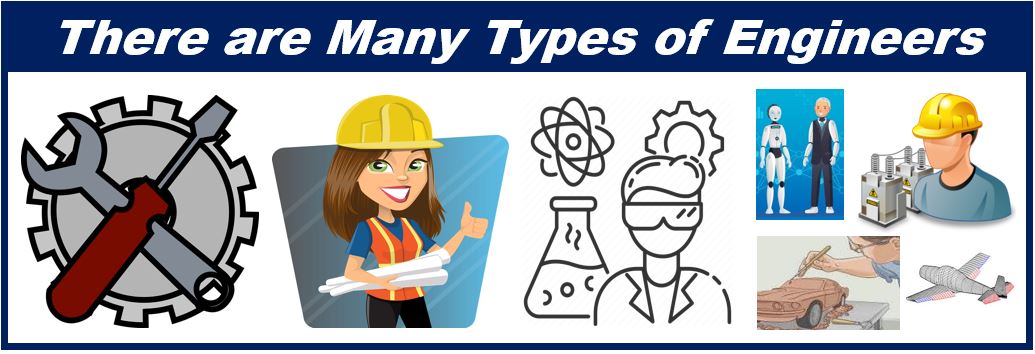Engineering is all about using scientific principles to create structures and machines. Examples include bridges, pharmaceuticals, vehicles, airplanes, factory machines, buildings, roads, robots, and tunnels.
It is the application of mathematics and science to solve problems. Engineering professionals, i.e., engineers, figure out how things function. They look at scientific discoveries and find ways to get them onto the market.

Inventors, especially scientists, tend to get the credit for new inventions that improve your quality of life. However, we must not forget that those who are instrumental in finding practical uses for them are engineers.
Engineering is a wide field
There are many different types of engineers. The term may have a variety of meanings, depending on who uses it, where, and in which circumstances.
While some design and build roads, others are involved in food processing, creating robots, making industrial chemicals, or are trying to overcome manufacturing challenges.
Let’s look at five different types of engineers:
Mechanical engineers
Mechanical engineers design and create mechanical systems. They study systems and objects in motion. This field touches many aspects of our everyday life.
Mechanical engineers are key personnel in various industries, including aerospace, biotech, automotive, energy conversion, and manufacturing.
According to Columbia University in the City of New York, a mechanical engineer’s job is to transform an idea into a market-ready product. This involves figuring out the forces and temperatures the product or its parts will face, designing them to be functional, attractive, and long-lasting, and selecting the best manufacturing process to ensure the product works reliably.
Electrical engineers
These professionals focus on technology that uses electricity as its power source. They work on electrical devices, systems, and components. One might be working on something tiny, such as a microchip, while another may be building a massive power station.
Industrial engineers
These engineering professionals, as the name suggests, work in industry. More specifically, they focus on boosting efficiency, lowering costs, improving product quality (or service quality), and health and safety in the workplace.
They also implement strategies to make a company or its factory environmentally friendly. Compliance is also the focus of industrial engineers. Compliance refers to adhering to or complying with (obeying) a set of rules and regulations.
According to the Institute of Industrial & Systems Engineers (IISE), industrial and systems engineering is all about designing, improving, and setting up integrated systems that bring together people, materials, information, equipment, and energy. It uses expertise from mathematics, the physical and social sciences, and engineering principles to define, predict, and assess how these systems will work in practice.
Chemical engineers
Chemical engineers work in creating industrial chemicals, pharmaceuticals, as well as food processing. They design the systems, processes, and equipment for refining raw materials and processing chemicals to make products that consumers, businesses, and other entities use.
Civil engineers
Civil engineering has been around for thousands of years. Professionals design, build, and maintain the infrastructure items of a country, region, or town.
They build, for example, railways, hospitals, water supply systems, bridges, tunnels, buildings, dams, and sea defenses. Much of what we see around us outdoors has something to do with civil engineering.
According to the Institution of Engineers in the United Kingdom, civil engineering covers all the built structures around us, from roads, railways, schools, offices, and hospitals to water and power supplies. These are the essential elements we often take for granted but could hardly live without.
Career prospects
There are over forty different types of engineering degree courses at universities. Did you know that there are forensic engineers? Experts expect the whole sector, which is huge, to see significant growth over at least the next couple of decades.
If you are wondering what to study, bear in mind that engineering today is a top career. It will continue to be so for a very long time.
The notion that this type of career is for men is a myth. There are hundreds of thousands of women globally either studying or working as engineers. In fact, women are representing an ever-growing percentage of all engineers in the advanced economies and many of the emerging ones.
If you like math and science, and enjoy solving problems, you should seriously consider becoming an engineer.
